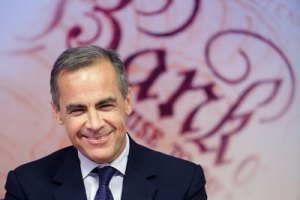BoE to Keep Rates Unchanged but Focus Will be on the economic projections
This week was always shaping up to be one of the more eventful of the year, with it being the final run up to the US Presidential election and offering up four major central bank meetings and the October jobs report just to add the icing on the cake.
And that was all before Hillary Clinton’s poll lead was shattered on Friday when the FBI announced that it is reopening its investigation after discovering new emails that appear relevant to the case. Since then we’ve seen the re-emergence of Trump risk being priced into the markets as the polls have tightened dramatically and in some cases, moved in favour of Clinton’s opponent.
Well in case this all isn’t eventful enough, Super Thursday is once again upon us which means the Bank of England will likely temporarily divert some of the attention away from the US and over to the UK, which has plenty of problems of its own to deal with since Brexit. The BoE will release its monetary policy decision, the minutes from the meeting, its quarterly inflation report and throw a press conference, chaired by Governor Mark Carney, less than 48 hours after he announced that he will remain at the BoE until 2019.
The BoE indicated back in August – when it cut interest rates to 0.25%, increased its bond purchases by £60bn, agreed to purchase £10bn of corporate bonds and launched a new Term Funding Scheme – that it would look to ease monetary policy further this year should the economy perform in line with expectations. In reality, I think most would agree that the economy has comfortably exceeded expectations and any further stimulus this year now looks unlikely.
Still, it will be interesting to see what the central bank’s assessment of the current economic situation and expectations for growth and inflation are, given the short term resilience that the economy has shown. The reality is that the BoE will continue to warn about significant downside risks to the economy including higher inflationary pressures, following a more than 15% drop in sterling on a trade weighted basis, lower to negative real wage growth and higher unemployment.
But just how pessimistic will the BoE be on the economy given that its forecasts prior to the referendum and in the immediate aftermath have proven to be far gloomier than the reality has been, albeit assisted by its own response to the vote and the fact that article 50 is yet to be triggered. And will it offer guidance on when we can expect further monetary support from the bank given that it’s now very unlikely to come this year, the data has thus far held up and the tools available at its disposal are becoming increasingly limited and some would argue, more ineffective.

The political situation in the US appears to have taken some heat off the pound since the story broke on Friday, in fact GBPUSD is up more than 1% since the announcement. The pair has since run into some resistance around the top end of it post-flash crash trading range, around 1.23, but I wouldn’t be surprised to see this break given how USD seems to be experiencing a race for the exit.
Against the euro, sterling is having less joy although it does appear to have stabilised somewhat as traders pared back their expectations for further stimulus this year. The trend is quite clearly bullish still though, although a break of the rising trend line may suggest a correction is on the cards. Further confirmation of this would be sought from a break below 0.8880, the most recent low. A break above the 0.9154 highs could open up a move towards 0.94.
The pound remains in consolidation against the yen at the moment, with support being found around 1.2550 and resistance around 128.75. Unlike other yen crosses, the pound continues to trade below the cloud and is not at risk of testing it in the near term, so therefore remains quite bearish. Still, any indication that the BoE is not considering further stimulus in the near term could provide the catalyst it needs to break above range resistance and perhaps test the cloud resolve.
